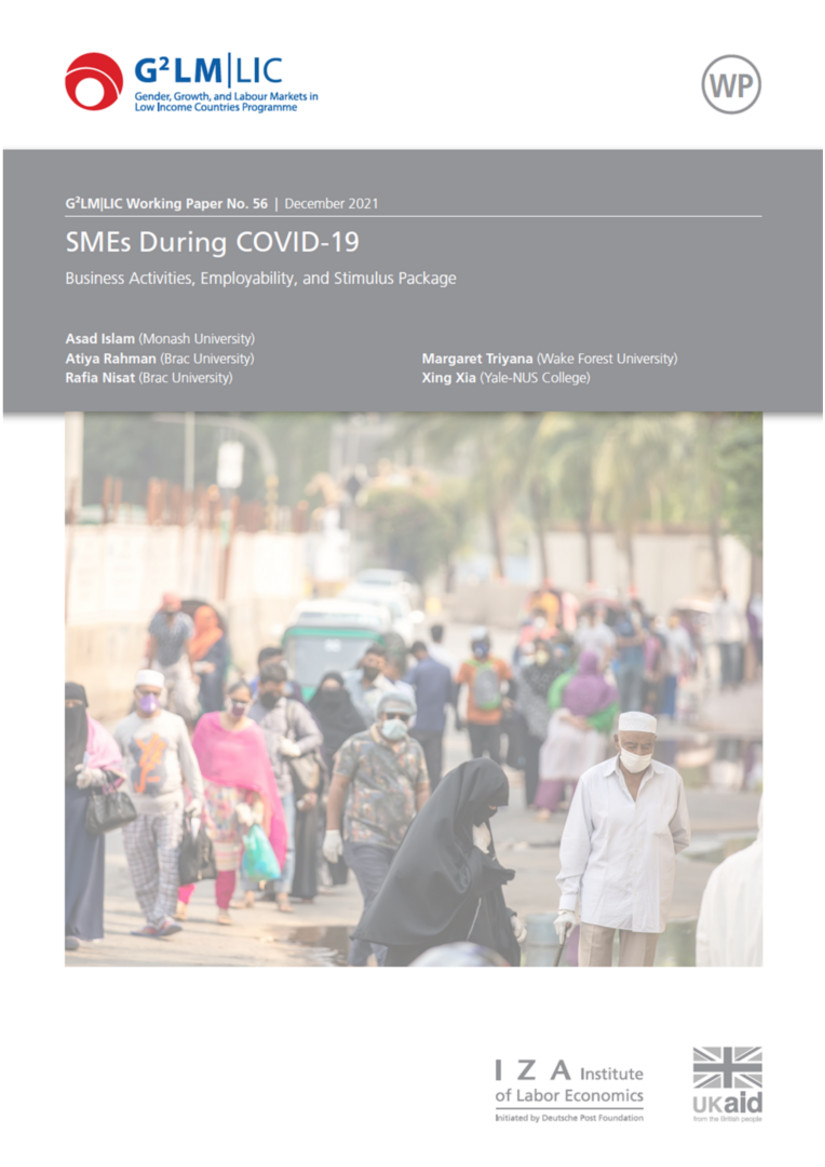The study examines how cottage and microenterprises have been coping with Covid-19. It conducts a largescale panel survey of about 2300 microenterprises across Bangladesh. In the first round of the survey in July 2020, the study found that the average sales were less than half of that of pre-Covid levels and only about 60% of enterprises were fully open. While laying off workers was not that prevalent, employees in more than 80% of enterprises were facing a cut in working hours and wages. To assess the extent of recovery, the second round was conducted in January 2021 – eight months after the first lockdown. It appears that the enterprises have largely recovered; 97% of the enterprises were fully open for business. But they were still struggling with sales and orders, with sales remained 17% lower than the pre-Covid level, indicating a sluggish demand. Recovery was also uneven across sectors. Businesses that require more close contact have much lower recovery. Female workers were disproportionately affected by COVID-19 as they experienced lower wages and reduced employment prospects following the recovery. They also experienced worse psychological stress during the pandemic. These small and medium firms also hardly received any financial support after nine months of the announcing the initial stimulus by the government of Bangladesh, suggesting barriers to accessing such incentives.

SME’s During COVID-19
- Asadul Islam
- Margaret (Maggie) Triyana
- Xing Xia
- Atiya Rahman
- Rafia Nisat
- Fahad Mirza
- Atiya Rahman
- Rafia Nisat